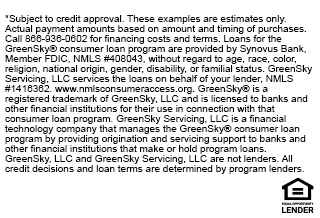WiFi technology has led to enhanced home fire protection. But many homeowners still have questions about smoke alarms, including:
- Do smoke detectors expire?
- How many smoke detectors does my home or commercial property need?
- Which is best: battery-powered or wired smoke detectors?
- When is it time for smoke detector upgrades?
Reasons You Need Smoke Detector Upgrades
Your smoke detector beeps to let you know it’s time for a new battery. If you’re like three out of four people in the United States, you ignore the beep until it quits. And then you forget to change the battery.
A working smoke detector increases your chances
of surviving a home fire by 50%.
Smoke alarms are your first line of defense, so it’s critical to keep them operating efficiently. We know that. But the smoke alarm statistics say Americans are negligent in protecting our properties from fire:
- 1 in 10 don’t have a smoke detector in their homes.
- 16% have never tested their smoke detectors.
- 20% have disconnected their smoke detectors.
- Only 1 in 4 test their smoke detectors monthly.
Smoke Alarm Placement
Smoke alarm placement should ensure there are no obstructions like doors blocking the airflow. Every room has “dead air spaces” that can impede smoke alarm operation. Your professional electrician can explain each room’s best placement.
There should be a smoke detector located in:
- Every bedroom
- Kitchens (10´ from cooking appliances)
- Near HVAC (heating, ventilation, air conditioning) system – locate at least 3´ from AC unit or 20´ from gas furnace
- Outside every bedroom
High-ceiling homes and pitched-roof homes have special requirements, so check with your local electrician for proper placement.
Hardwired Smoke Detectors Required
The National Fire Protection Association (NFPA) says all home smoke alarms must be “interconnected through hardwiring or a wireless signal.” New homes are required to have hardwired smoke alarms with backup batteries. Upgrading to a hardwired smoke detector system in the Phoenix area can increase your property value, too.
A smoke detector upgrade will include the latest technology enhancements. For example, when one alarm sounds on an interconnected system, every alarm in the house goes off. Newer smoke alarms usually include a carbon monoxide detector.
Smoke Detectors Expire
Ten years is the maximum life for a residential or commercial smoke alarm. If your alarm includes a CO detector, 5-7 years is typical.
Testing smoke alarms is a service provided during your annual electrical inspection, but that’s not enough. To stay on top of your alarms’ efficiency, test them monthly. If you haven’t upgraded to wired smoke detectors, you should replace the batteries every year. Some battery-powered smoke detectors come with nonreplaceable batteries that can last up to 10 years.
What To Look For in Smoke Detector Upgrades
In Arizona, you can’t sell a property with expired (older than 10 years) smoke detectors. New homes and new renovations require hardwired, interconnected battery backup smoke detectors. Underwriters Laboratories-listed smoke alarms are also mandatory in Arizona.
There are 3 types of UL®-approved smoke detectors:
- Dual-sensor ionization & photoelectric – This is the best protection available, especially if the unit includes carbon monoxide detection.
- Single-sensor ionization – These detect small particles; great for fast flames but less effective for smoky fires. Because of more-than-usual false alarms, don’t mount near the kitchen/bathroom.
- Single-sensor photoelectric – These detect larger particles; great for smoky fires but less effective for fast flames. There are fewer false alarms, so it is better to place them near the kitchen/bathroom.
Smarter is better, but if you can’t afford a high-end smoke detector, choose the best dual-sensor alarm. Single-sensor smoke alarms will eventually be phased out*, so if it’s time for a smoke detector upgrade, dual-sensor is the best investment.
Turn It On Electric specializes in whole-house smoke detector upgrades. If you have questions, contact TIO Electric.
___
*…standards for UL certification…are expected to prohibit manufacturers from producing single-sensor smoke detectors—which is even more reason to consider a dual-sensor unit. –popularmechanics.com










